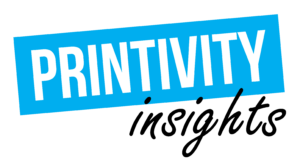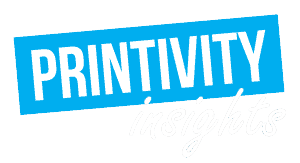Last updated on August 6th, 2024 at 02:44 pm
There is no shortage of options when it comes to publishing a book these days. The good news is, you do not need to be an established author either, absolutely anyone can publish a book if they want to! Whether or not your book is a success is another story… Without further ado, here is our guide to publishing books.
To self-publish or not self-publish
Which publishing path is right for you? Well first off, it is very difficult to get an offer to publish through traditional publishers. If this is your first book and you have not gotten your name out there yet, you may be better off self-publishing. There are quite a few advantages to self-publishing. To start, you maintain full ownership of rights and royalties. This is huge. This allows you full creative freedom to create the book you want, without a publishing company taking the reigns and potentially changing it to fit their narrative better.
On top of this, you can get your book to market much faster than a traditional publisher, in fact, you could have your book to market within 6 months! Working with a traditional publisher could take significantly longer. With all of that being said, traditional publishing is still a good option especially if you are able to secure a monetary advance prior to publishing. If you receive a good enough advance, it may be well worth it to opt for this route as opposed to self-publishing. Unfortunately, the odds of an unknown person securing a significant advance are slim.
Edit your draft
So you have your book ready and you have decided how you want to publish it. A good next step would be to give your draft a thorough edit. The key to editing is to read through multiple times. Give it the first go and then let it sit for a week or so before looking at it again. It is helpful to approach it with fresh eyes as you more than likely missed something the first time around.
When you are editing your book, start with the plot and characters. Read through the book in its entirety and take notes while thinking about the big picture. Does your plot make sense and follow a clear structure? Do you have enough plot points to keep things interesting but not rushed? Are your characters well-rounded? If you are having trouble with the editing process, try reading your book out loud. This is a great way to break through potential mental blocks and hear how you can improve your writing.
Get feedback
Feedback is crucial, especially during the editing process. You are super close to your book. So close, in fact, it may be hard to spot plot holes or errors. Having a second, or even third, set of eyes take a look at your book will help you improve it even more. Ask your friends, family, and trusted collaborators to submit anonymous forms with their feedback to ensure they do not hold back. Honesty is the best policy here and will only make your book even better. Another thing you can do here is ask for suggestions on how to solve any problems that may come up. This way, instead of just having issues pointed out, you are receiving constructive feedback that will help you move forward with your edits.
If you are not sure who to ask for feedback, consider turning to the online world. There are many communities of writers out there who would love to provide feedback and critiques. Check out Facebook groups or individual forums to see if you can pair up with someone looking to give and receive feedback. This way, you can work together and help each other draft the best books possible. Working with another writer and being exposed to their work can also help broaden your own skill set.
Format your book for publication
Ok, now that you have your draft edited and finalized, it is time to get it ready for the presses!
It is crucial to format your book with chapter headings, aligned text, and page numbers to help your readers have a smooth reading experience. If you are sending your book to an agent, all you have to do is format your manuscript in a standardized way and you are good to go. If you are self-publishing, things may get a bit trickier here. You need to make sure your book is formatted and 100% ready to upload to your chosen publisher.
If you do not feel comfortable formatting your book yourself, you can consult formatting software or even hire a professional typesetter. A professional typesetter will be expensive, but it ensures immaculate design and you will not have to worry about doing it yourself. Sometimes things are better left to the professionals.
Design your book cover
Once you have your book finalized, you can start to design the book cover. The book cover is a very important aspect of your book as this is what will draw your readers in. You’ll want to craft an eye-catching, tasteful cover that captures the essence of your book. This is another step that you can leave to the professionals if you do not feel comfortable designing it yourself.
Write your book description
Equally as important as your book cover, you will need to write up a book description for the back of your book as well. Once you have your audience hooked with your beautiful cover, they will flip your book over to get a better idea of what is inside. Here is where you want to hook your readers and leave them wanting to know more they can’t help but buy your book so they can go home and read it.
Print your books with Printivity
Printivity offers a variety of book printing options perfect for the self-publisher, from spiral, bound, perfect bound, hardcover, and more. You can’t go wrong with any binding option, but depending on the number of pages in your book, some options may make more sense. If you have written a 200-page novel, perfect binding may be a good option for you! If you have a book with over 64 pages or less, saddle stitch may be a better option. With various finishing options like UV coating or clear lamination, you can print the book of your dreams that will last for years to come.
If you are ready to get your order started or have any questions about the process, don’t hesitate to contact Printivity today at 1-877-649-5463.










